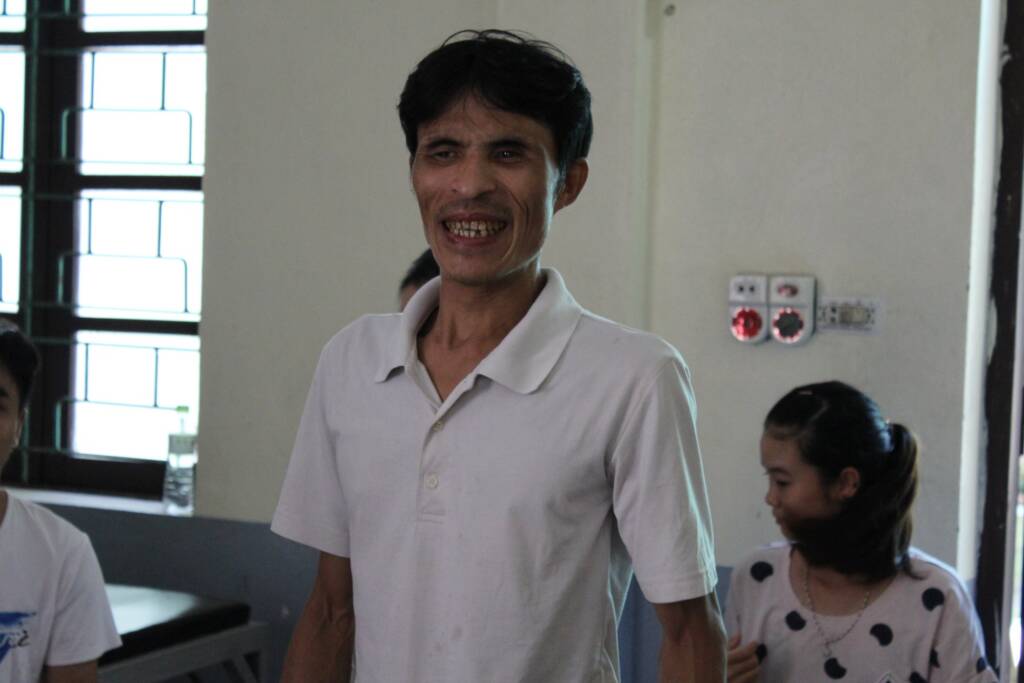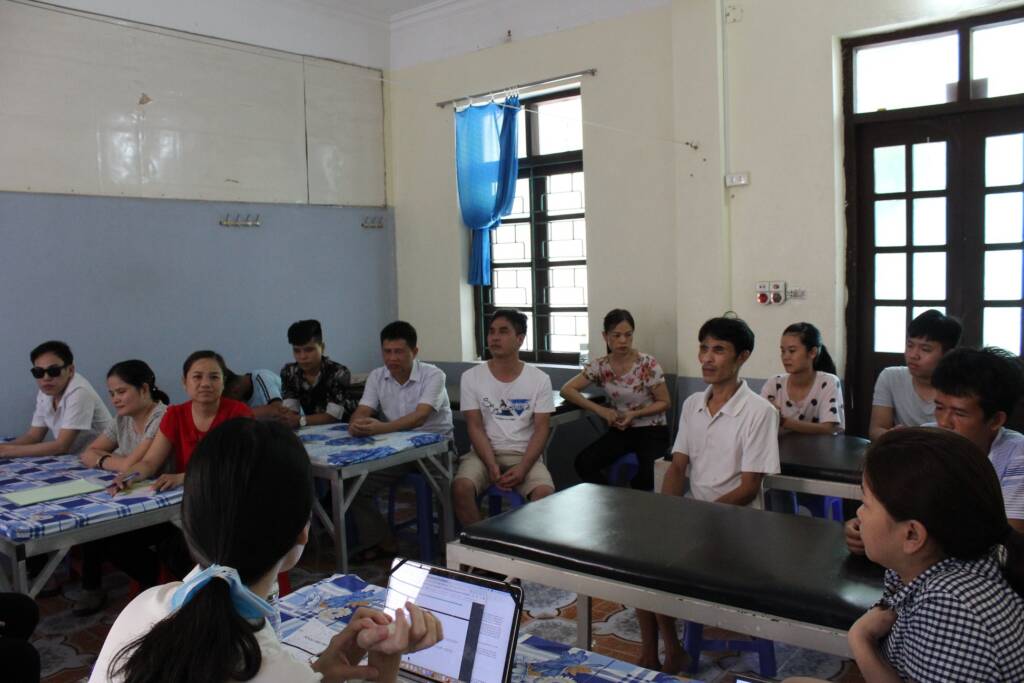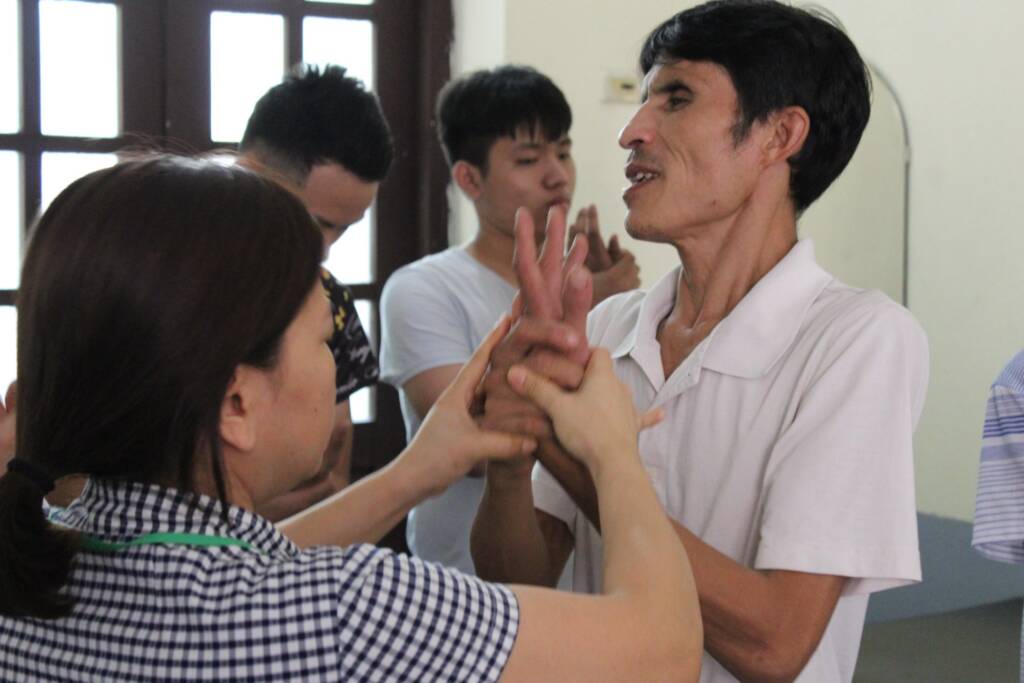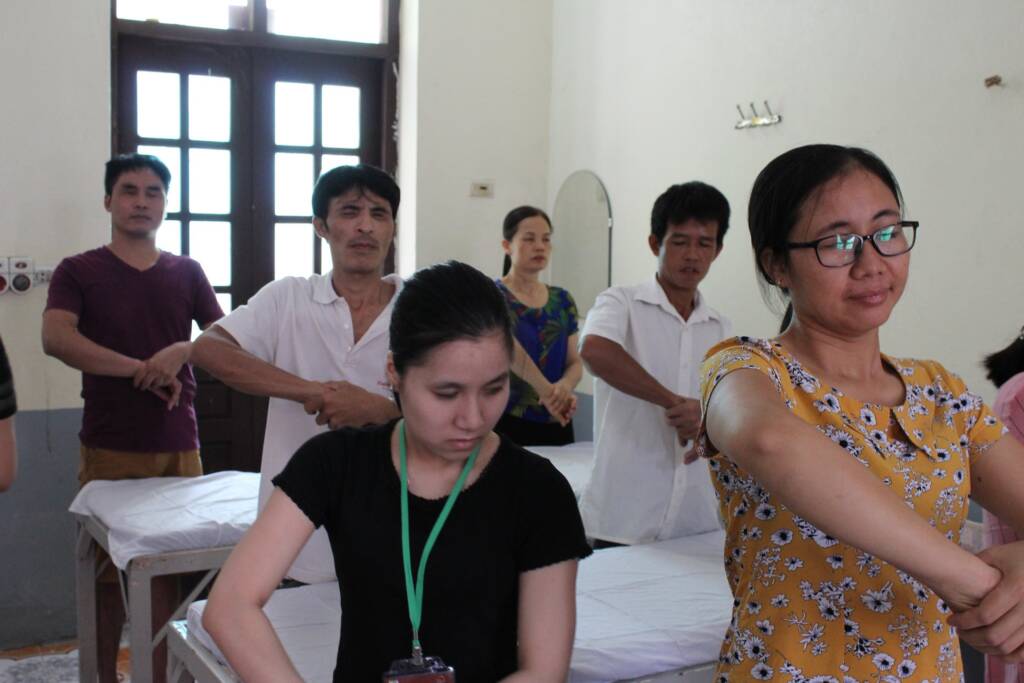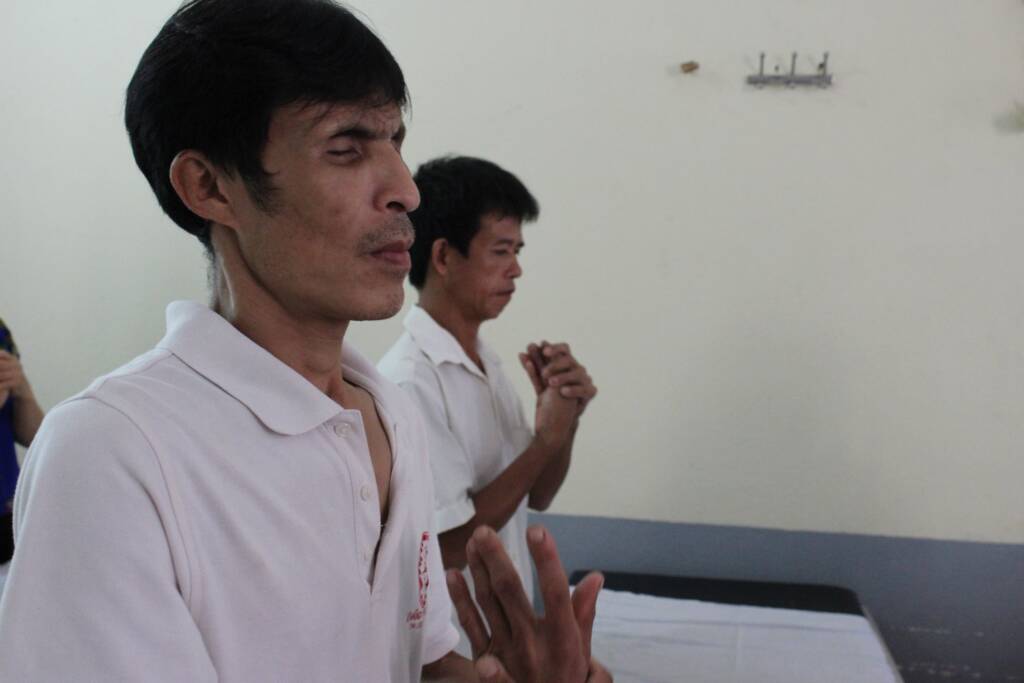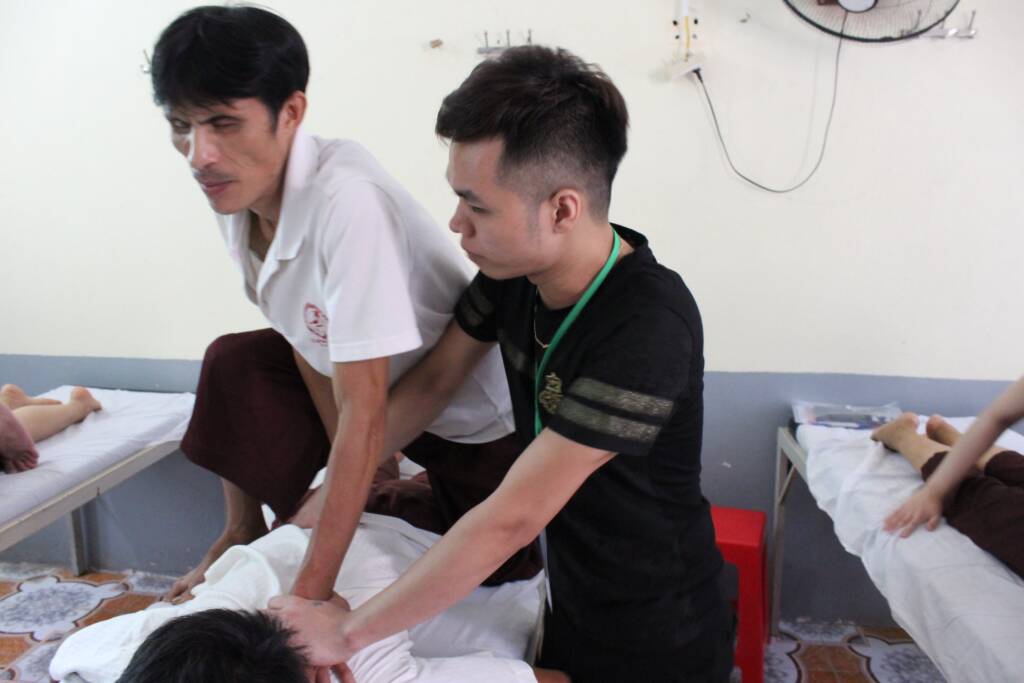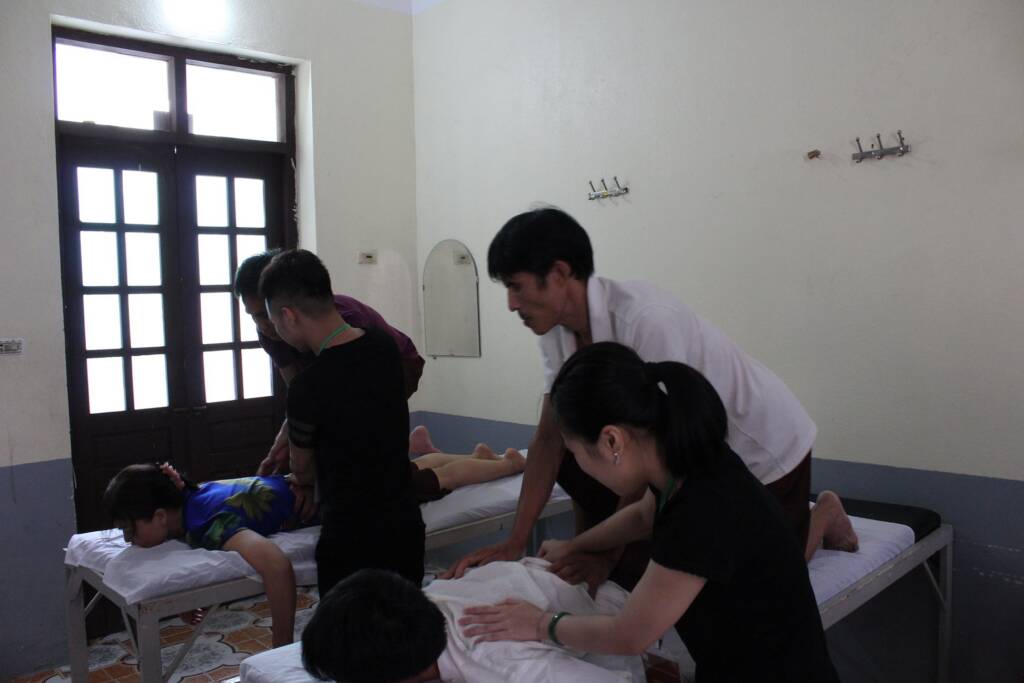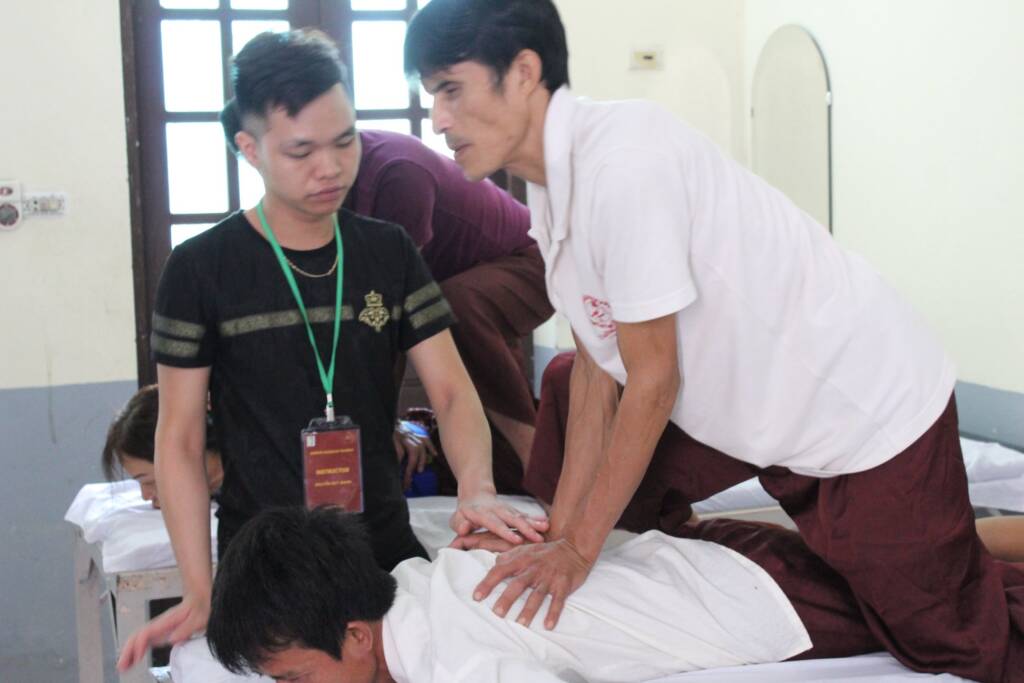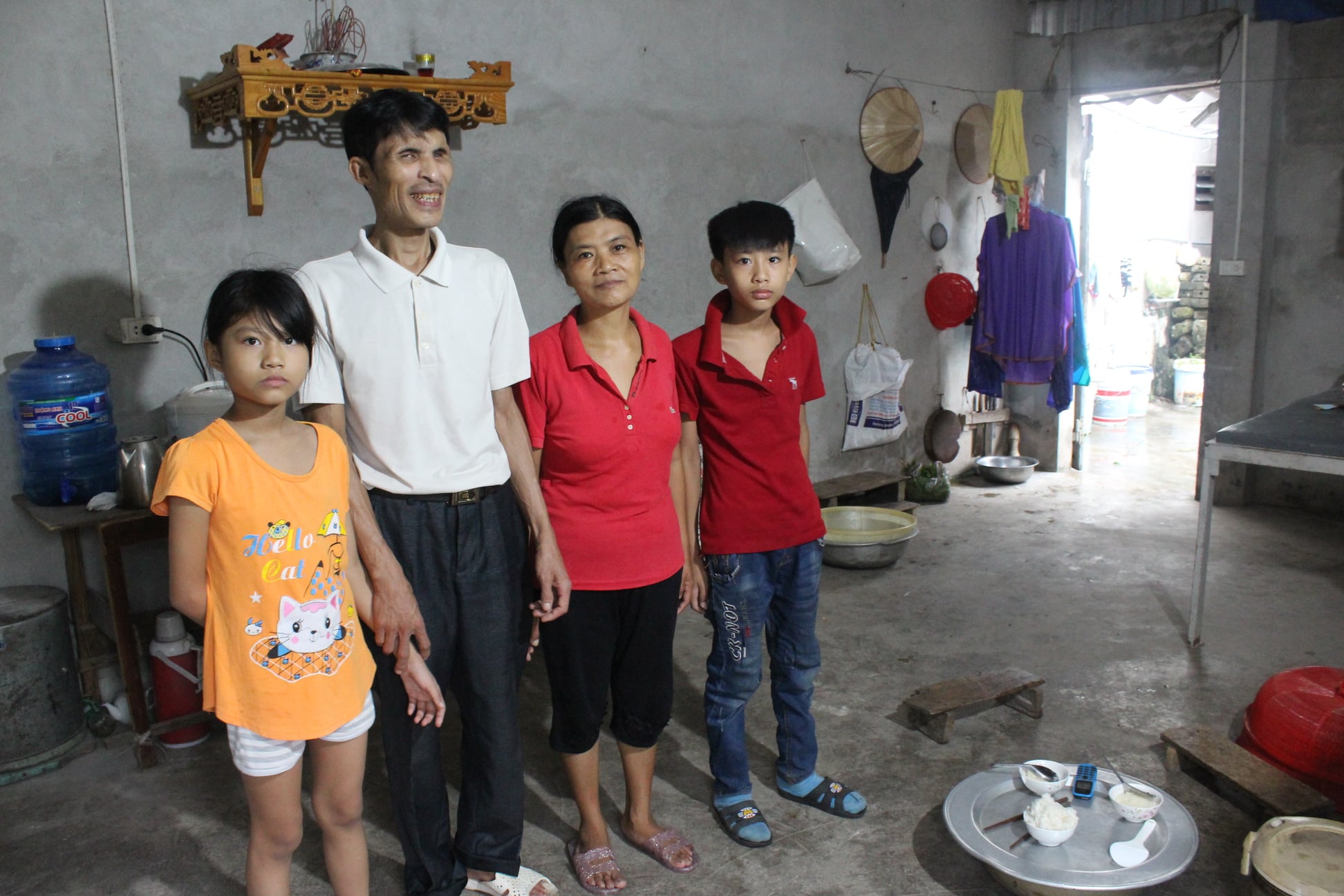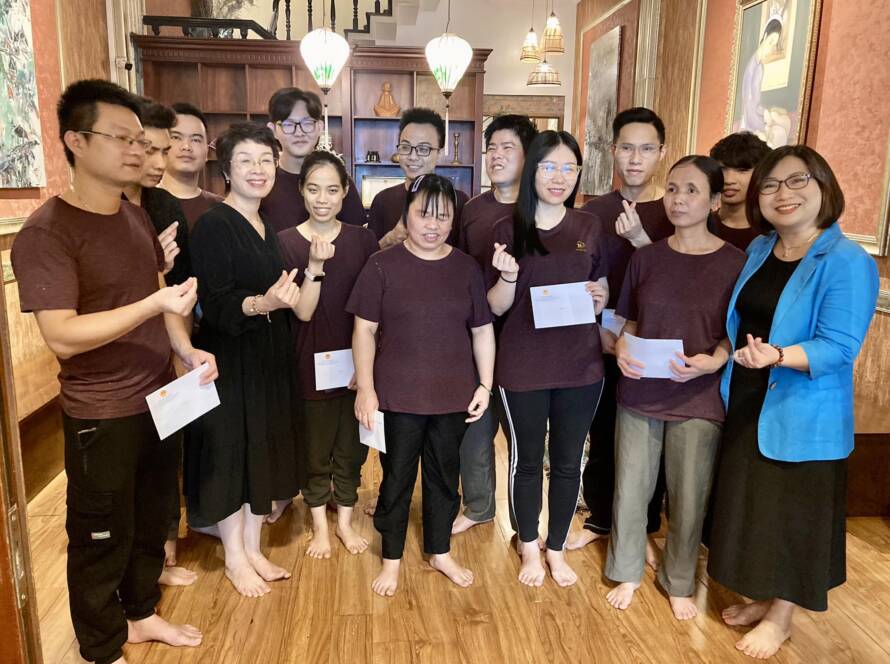At first glance, Mr. Ninh Văn Cộng’s deeply lined face might suggest a life marked by relentless hardship – yet, it’s his incredibly kind, unwavering smile that truly tells his story.
Now 46 years old, Mr. Cộng was born blind into a poor farming family of seven children in Ninh Xuân commune, Ninh Bình province. His mother contracted the flu during pregnancy, which doctors later suspected led to multiple vision impairments: corneal malformation, cataracts, and ocular muscle disorders. Despite living in complete darkness, he still endures frequent pain in his eyes.
In the 1980s, rural Vietnam offered no schools for blind children, and Mr. Cộng spent his early years trapped in isolation, confined within the four walls of his home, starved of education and social connection. “I felt ashamed, invisible,” he recalls with a quiet dignity. That began to change in 1994, when a glimmer of hope appeared: the local Blind Association offered him the opportunity to learn Braille.
With a deep, unquenchable hunger for knowledge, Mr. Cộng embarked on a journey of self-teaching. He meticulously created tactile learning tools from cut-up cardboard to grasp basic arithmetic. He would humbly ask relatives and neighbors to read textbooks aloud, then painstakingly transcribe them into Braille, copying materials from grades 1 through 4. His most faithful reading assistant was his niece, the daughter of his older brother. Over time, Mr. Cộng not only taught himself reading and writing but also cultivated a profound interest in biology and nature, building a rich inner world.
His life expanded further when he married a woman with a mild intellectual disability, whom he met while she was working as a manual laborer in a local lime kiln. Despite both facing significant challenges, they built a life together, grounded in mutual support. Today, they are raising two children: a 13-year-old son and a 10-year-old daughter, both diligently attending school.
Securing stable employment remains a formidable challenge for the family. His wife, due to her cognitive limitations, can only find odd cleaning jobs when available. Before the COVID-19 pandemic, Mr. Cộng earned a modest income of about 2–2.5 million VND (approximately $80–100 USD) per month from massage therapy. In 2012, hoping to ease their financial burden, he bought an electric flour grinder so his wife could work from home. However, after she accidentally burned out the motor twice, he bravely took over the dangerous task himself. In earlier times, when traditional cake-making was common in the village, he could earn up to 800,000 VND/month from grinding flour. Now, from occasional jobs, he makes only 2–300,000 VND/month.
The family is officially classified as a “long-term poor household,” a designation that underscores their ongoing struggle. Mr. Cộng’s biggest worry, the one that keeps him awake at night, is whether he can continue to afford his children’s education. While primary schooling is mostly subsidized, secondary education demands additional payments. “Right now, I pay about 5 to 6 million VND a year,” he states, the weight of the sum evident in his voice. “That’s more than we can afford, but I’ll do whatever it takes so my children don’t have to drop out.”
Despite the profound hardship that has shaped his life, Mr. Cộng’s voice is remarkably full of warmth, humor, and a quiet, unyielding optimism. His deep-set eyes may no longer perceive light, but his spirit radiates something far stronger: the enduring light of love for his family, unwavering dignity in the face of adversity, and an inspiring determination to build a better future, one gentle smile at a time.
